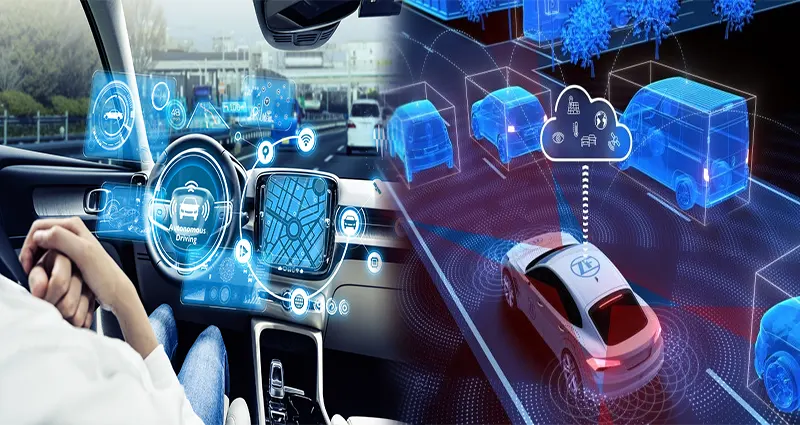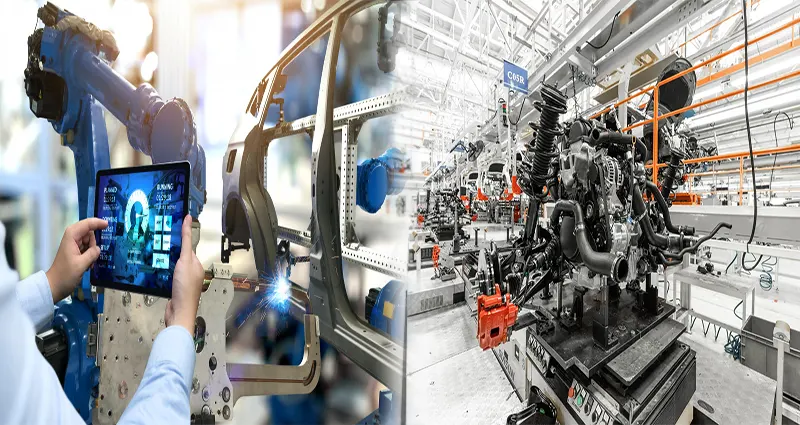The Impact of Autonomous Driving Technology on the Car Industry
Autonomous driving technology, once the stuff of science fiction, is now a reality that is rapidly transforming the car industry. The advent of self-driving cars is not just changing the way we drive; it is reshaping the entire automotive landscape in profound ways. Let’s delve into how this cutting-edge technology is revolutionizing the car industry.
1. Safety Improvements:
One of the most significant impacts of autonomous driving technology is the potential to make our roads safer. Self-driving cars have the ability to react faster and more predictably than human drivers, reducing the likelihood of accidents caused by human error. Features like automatic braking, lane-keeping assistance, and adaptive cruise control contribute to a safer driving experience for all road users.
2. Increased Convenience:
Autonomous vehicles offer a level of convenience that was previously unimaginable. Imagine being able to relax, work, or catch up on sleep during your commute while your car … Read More ...
A Royal Family’s Philanthropy: The Charitable Significance of Russian Royal Engagement Rings
Engagement rings have long been symbols of love and commitment, but in the context of Russian royalty, they carry an additional layer of significance that intertwines romance with philanthropy. The engagement rings worn by members of the Russian royal family often tell stories not just of personal devotion but also of charitable endeavors and cultural heritage. Through these exquisite pieces of jewelry, the royal family has historically engaged in philanthropy, using their status and influence to support various causes.
One of the most notable examples of this intersection between royal engagement rings and charitable acts is found in the history of the Romanov family. The Romanovs, who ruled Russia for over three centuries, were known for their opulence and wealth. However, they also had a deep sense of responsibility towards their subjects and often used their position to address social issues. The engagement rings they gifted were not only tokens … Read More ...
How to Find Affordable Car Insurance for New Cars
Buying a new car is an exciting milestone, but the costs can quickly add up. One area that new car owners need to navigate is finding affordable car insurance to protect their investment. With a little research and the right approach, you can find a policy that suits your needs without breaking the bank.
1. Compare Multiple Quotes:
One of the best ways to find affordable car insurance for your new car is to compare quotes from different insurance providers. Online comparison tools make it easy to see different options and prices in one place, allowing you to choose the most cost-effective policy.
2. Take Advantage of Discounts:
Many insurance companies offer discounts that can help lower your premium. Look for discounts such as multi-policy, good driver, or safety feature discounts. Being a new car owner could also make you eligible for new car discounts, so be sure to ask … Read More ...
Unveiling the Impact of AI on the Automotive Manufacturing Process
Artificial Intelligence (AI) is revolutionizing the automotive manufacturing industry, reshaping traditional processes, enhancing efficiency, and driving innovation to new heights. As automakers harness the power of AI technologies, the production line is undergoing a significant transformation, optimizing operations and delivering a more streamlined and intelligent approach to manufacturing. Let’s delve into the profound impact of AI on the automotive manufacturing process.
1. Predictive Maintenance
One of the key benefits of AI in automotive manufacturing is predictive maintenance. AI-powered algorithms analyze data from sensors and machinery to predict potential equipment failures before they occur. By identifying issues in advance, manufacturers can schedule maintenance proactively, minimize downtime, and optimize productivity on the production floor. This predictive approach helps reduce costs and enhances overall operational efficiency.
2. Quality Control and Inspection
AI systems are being utilized in automotive manufacturing for quality control and inspection processes. Machine learning algorithms can analyze visual data from … Read More ...
Navigating the Best Car Insurance Options for Young Drivers with No History
For young drivers who are embarking on their journey behind the wheel, securing the right car insurance is a crucial step in ensuring both safety on the road and financial protection. However, the task of finding affordable and comprehensive coverage can be daunting, particularly for those with no prior driving history. To help young drivers navigate this process effectively, let’s explore some of the best car insurance options tailored for individuals with no history.
1. Usage-Based Insurance
One innovative solution for young drivers with limited or no driving history is to opt for usage-based insurance. This type of coverage monitors driving behavior through telematics devices or smartphone apps and adjusts premiums based on factors such as driving habits, mileage, and adherence to safe driving practices. By demonstrating responsible driving behavior, young drivers can potentially lower their insurance costs over time.
2. Family Policy Add-On
Young drivers with no prior history … Read More ...













